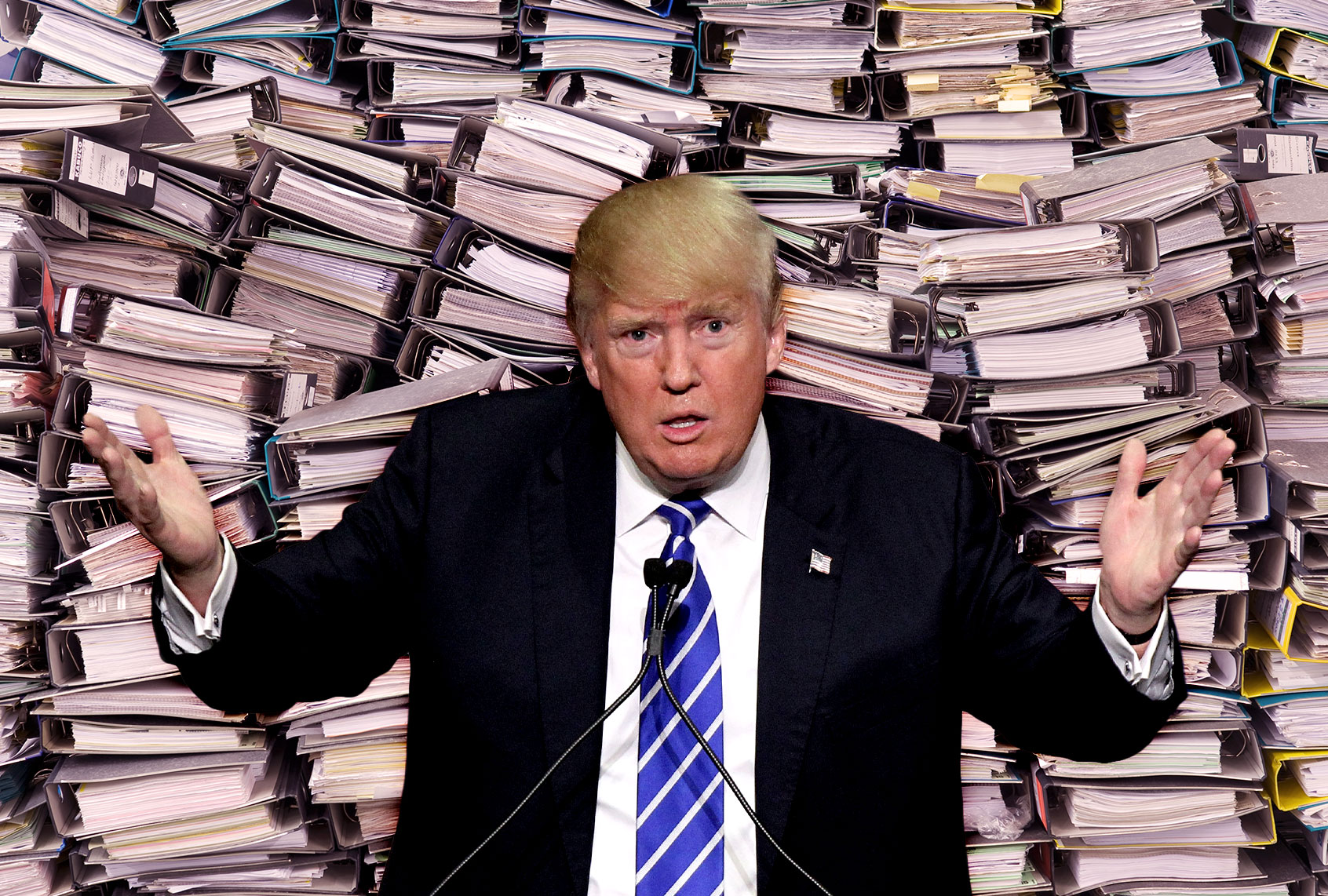There was already a strong case against former President Donald Trump in the Mar-a-Lago documents case, in the form of evidence that he intentionally concealed over 100 classified and top-secret government documents, even after he was repeatedly asked and even subpoenaed to return them. But if Trump was in trouble before, testimony and documentation from his own lawyer, Evan Corcoran, could turn out to provide the final evidence necessary to charge Trump — and soon.
CNN’s reporting indicates that prosecutors will focus on a series of critical events in May and June 2022. They plan to ask Corcoran about his conversations with Trump regarding the May subpoena for documents, the search that followed, the drafting of a June statement signed by Christina Bobb saying there had been a diligent search and, finally, the call between Corcoran and Trump on the day last June when the DOJ subpoenaed surveillance footage that showed boxes being moved out of the storage location at Mar-a-Lago (which a witness later said was done at Trump’s direction).
The common thread involved here is Trump’s intent. It has been reported that after the subpoena was received, Trump ordered materials moved to conceal them from his own lawyers and the government — which would show intentional concealment. If Trump then lied to Corcoran, that would be more proof of intentional misconduct. And if Trump was hiding documents, that would have caused the search to be incomplete and the statement made to the government to be false. The government had some of this evidence already, as we explained in our Model Mar-a-Lago Prosecution Memo, but now Corcoran is likely going to hammer the case home.
Here it appears that Trump was engaged in a pattern of obstruction of justice — that is, he was intentionally covering up his possession of these documents and being dishonest with a government investigator, and potentially his own lawyers. It also appears that Corcoran may have been used by Trump to advance that alleged obstruction. Indeed, to get the Mar-a-Lago search warrant in the first place, there was previously been a probable cause finding of obstruction under 18 U.S.C. § 1519, as well as for the Espionage Act violations under 18 U.S.C. § 793(e) and concealing government records under 18 U.S.C. § 2071.
Proof of intent goes to those offenses as well. Each requires a showing of willfulness for Trump to be convicted (or, in the case of obstruction, an intent to obstruct or impede). That proof of intent is often hard to come by in prosecutions of complex statutes. Attempts to conceal the truth from investigators, however, are powerful proof toward demonstrating a consciousness of guilt. We expect that will ultimately be persuasive evidence to a jury.
It was apparently also powerful evidence for the federal judges who considered whether to pierce Trump’s privilege over communications with his lawyer. In American law, that is no small thing. The attorney-client privilege is sacrosanct and cannot be easily overcome. In this case, that required proof that the “crime-fraud exception” applied.
To get the Corcoran testimony and documents, the courts likely went past finding mere probable cause that Trump committed a crime. We don’t have the exact details of the district court decision and the D.C. Circuit appellate docket, which remain under seal. But under the law, to pierce the attorney-client privilege, the government must prove a prima facie case and prove that communications were made to further a fraud or crime. That’s exactly what U.S. District Chief Judge Beryl Howell ruled in a sealed order that reportedly found “compelling preliminary evidence” that Trump had “knowingly and deliberately misled his own attorneys.”
Want a daily wrap-up of all the news and commentary Salon has to offer? Subscribe to our morning newsletter, Crash Course.
The extraordinary speed with which this has moved from Judge Howell’s district court decision (on March 17) to the overnight briefing schedule in the D.C. Circuit (on March 21), to Corcoran’s testimony on Friday makes clear that special counsel Jack Smith is bringing significant urgency to the documents case. Smith is certainly working the Jan. 6 case hard, with the just-revealed news that last week a federal trial court set aside executive privilege for eight top Trump aides. (Trump has said he will appeal that decision.) But in this case we got the trial court decision, the appeal and its resolution within five days. Smith seems to be applying extra urgency to the Mar-a-Lago documents case, which tells you something about Trump’s peril. DEFCON going up.
For Trump, legal peril seems to exist at every turn. Manhattan District Attorney Alvin Bragg is apparently on the verge of indicting the former president for his role in a hush-money scheme dating from the lead-up to the 2016 election. And prosecutors in Atlanta are apparently considering racketeering charges against the former president in connection with reported attempts to overturn the 2020 election in Georgia. Such charges would entail very stiff sentences.
Recent efforts by Trump and House Republican extremists to intimidate and obstruct the Bragg investigation, which are likely to occur in the other criminal investigations into Trump as well, can be expected to have zero effect on the will of those prosecutors to do their job, except perhaps to make it all the stronger.
Although the outcome of any one of the four potential criminal cases focused on Trump remains unclear, Trump appears to be in hot water — with the temperature rising to a rapid boil.
Read more
on our 45th president’s legal dilemma

